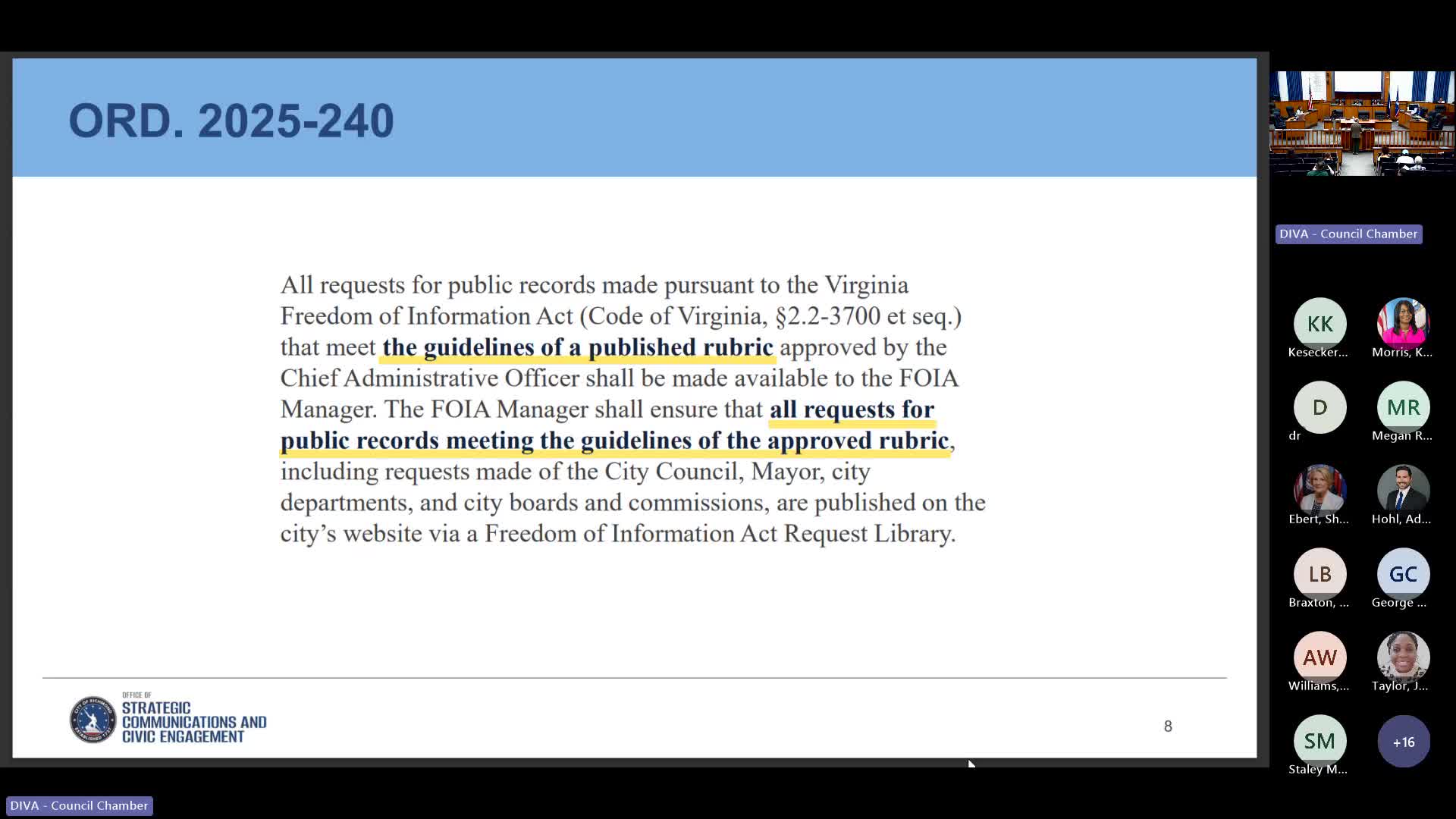Fleet office outlines EV transition and closes majority of fuel-card audit recommendations
Get AI-powered insights, summaries, and transcripts
Subscribe
Summary
General Services and Fleet staff presented a Green Fleet Transition Plan, reported recent EV and hybrid vehicle acquisitions, and said they have closed five of nine recommendations from a fuel-card audit; four recommendations remain outstanding.
The Department of General Services and fleet staff briefed the Governmental Operations Committee on the city’s Green Fleet Transition Plan, recent fleet additions and the status of a fuel‑card audit.
Jason Arnke, Fleet Operations Manager, said the fleet is making progress on electrification and technician training: roughly 90% of technicians have EV-related certifications and staff have added electric and hybrid vehicles across the municipal fleet. Arnke said fleet replacement decisions use a decision tree that first evaluates whether a vehicle is required, then whether it can be downsized or electrified, and that hybrid vehicles may be used as a bridge for some uses.
Gail Johnson, director of General Services, reported that an audit of the city’s fuel-card program yielded nine recommendations; the department has closed five and has four outstanding. The closed items include development of a fuel-card policy submitted to the auditor’s office and a training module for fuel‑card users now scheduled to be placed on the city’s learning platform.
The city auditor’s office representative said audit work used risk-based sampling and noted a sampled reduction in fuel quantity equal to roughly $250,000 across the audit timeframe; auditors said controls, monitoring and policy changes are intended to address causes and to limit improper use going forward.
Fleet staff said the overall fleet counts in committee discussion: about 1,977 fleet assets citywide, including roughly 25 battery-electric vehicles and 48 hybrid vehicles (figures presented in committee). Staff acknowledged infrastructure constraints at older fleet facilities and noted that electric-vehicle procurement costs remain higher than internal-combustion counterparts but will reduce lifetime fuel and maintenance expense. Staff said the fleet is pursuing grant funds, vendor partnerships and facility planning to scale charging infrastructure and future medium/heavy-duty electrification.
